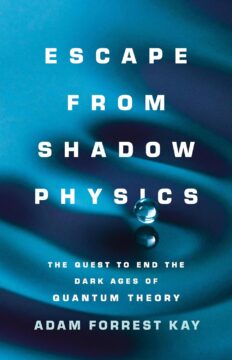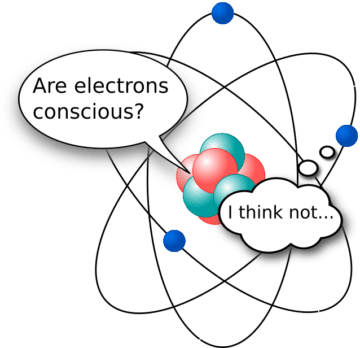by David Kordahl
 There’s an old story, popularized by the mathematician Augustus De Morgan (1806-1871) in A Budget of Paradoxes, about a visit of Denis Diderot to the court of Catherine the Great. In the story, the Empress’s circle had heard enough of Diderot’s atheism, and came up with a plan to shut him up. De Morgan writes,
There’s an old story, popularized by the mathematician Augustus De Morgan (1806-1871) in A Budget of Paradoxes, about a visit of Denis Diderot to the court of Catherine the Great. In the story, the Empress’s circle had heard enough of Diderot’s atheism, and came up with a plan to shut him up. De Morgan writes,
Diderot was informed that a learned mathematician was in possession of an algebraical demonstration of the existence of God, and would give it him before all the Court, if he desired to hear it. Diderot gladly consented: though the name of the mathematician is not given, it was Euler. He advanced towards Diderot, and said gravely, and in a tone of perfect conviction: Monsieur, (a + bn) / n = x, donc Dieu existe; répondez! Diderot, to whom algebra was Hebrew, was embarrassed and disconcerted; while peals of laughter rose on all sides. He asked permission to return to France at once, which was granted.
De Morgan concedes that the story may not be true, yet even at face value, it’s a puzzling anecdote. De Morgan tells us that “Euler was a believer in God, downright and straightforward.” It’s obvious that an algebraic expression has no bearing on God’s existence. In the story, Diderot misses that point (the historical Diderot was not, in fact, so ignorant), but it leads the modern reader to wonder…so what? Diderot may or may not have been an overly dogmatic atheist, but should a “downright and straightforward” believer really defend his beliefs with bullshit?
The modern reader might then ask a followup question. What questionable claims today have been made harder to dismiss by cloaking them in math?
A few possibilities from economics and psychology come to mind, but this column will discuss a new book that advances the charge against quantum physics. Escape from Shadow Physics: The Quest to End the Dark Ages of Quantum Theory, by Adam Forrest Kay, forwards some complaints that readers of popular physics may find find a little familiar (cf. Sabine Hossenfelder’s Lost in Math, or Adam Becker’s What Is Real?), but Kay introduces enough historical and philosophical breadth to make his version my new favorite of the bunch, if with some reservations about its conclusions. Read more »

 The only thing worse than a good argument contrary to a conviction you hold is a bad argument in its favor. Overcoming a good argument can strengthen your position, while failing to may prompt you to reevaluate it. In either case, you’ve learned something—if perhaps at the expense of a cherished belief.
The only thing worse than a good argument contrary to a conviction you hold is a bad argument in its favor. Overcoming a good argument can strengthen your position, while failing to may prompt you to reevaluate it. In either case, you’ve learned something—if perhaps at the expense of a cherished belief.